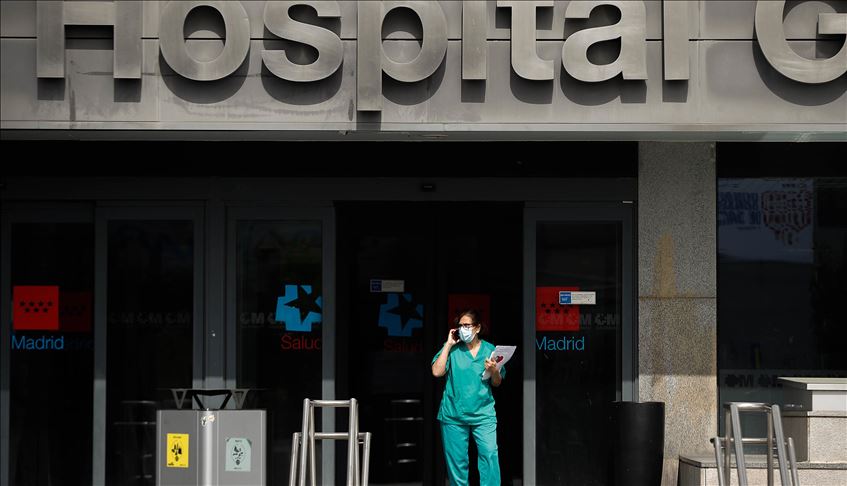Spain testing COVID-19 drugs
Researchers have begun clinical trial on HIV drug to reduce viral load to make COVID-19 less contagious

OVIEDO, Spain
The death toll Friday from the coronavirus in Spain surpassed 1,000 and the number of confirmed cases approached 20,000, according to health officials.
Reducing the transmission rate of the virus known as COVID-19 has become an urgent global goal. It is the reason why nations around the world are canceling activities, locking down citizens and halting international travel.
But researchers here hope to soon find a solution to the virus known as COVID-19.
In a pioneering clinical trial that began this week in Barcelona, scientists are examining if an already known HIV drug, darunavir, can reduce the viral load in non-severe COVID-19 cases and make it less contagious.
At the same time, researchers will be giving the anti-microbial drug, hydroxychloroquine, to close contacts of those who have the virus. This could reduce the chance of becoming sick.
“If the strategy works, it could reduce community transmission of the novel coronavirus and allow a re-thinking of preventative measures like isolation,” according to a news release from Fight against AIDS and Infectious Diseases Foundation, the group leading the study.
A clinical trial received approval from the World Health Organization (WHO) and Spain’s Agency of Medicines and Medical Products.
Current estimates from Spain suggest that each virus carrier will infect 15% of those with whom they come in contact. If an infected person is in contact with 20 people, between two and three more people will become infected and start a new chains of transmission.
Nearly 200 people in the Barcelona area who have tested positive for COVID-19 will get the HIV-drug, and 2,850 of their contacts will take hydroxychloroquine. The first results of the trial are expected in May.
“Home confinement of infected individuals and contacts is challenging, efficacy is variable, and the rigorous tracking involved requires a considerable amount of public health resources,” wrote lead researchers Oriol Mitja and Bonaventura Clotet, in the peer-reviewed Lancet journal on Friday. “Identifying a treatment for the prevention of COVID-19 would change the course of the outbreak entirely.”
In the meantime, Mitja is urging everyone to stay inside and is pushing the Spanish government for stricter quarantine measures.
The virus emerged in Wuhan, China last December, and has spread to at least 163 countries and territories. The WHO declared the outbreak a pandemic.
Out of more than 263,000 confirmed cases, the death toll now exceeds 11,000, and over 87,000 have recovered, according to data compiled by the U.S.-based Johns Hopkins University.
Despite the rising number of cases, most who become infected suffer only mild symptoms and recover.








